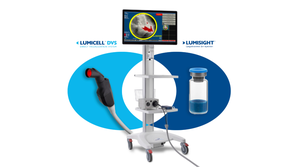University of Portsmouth researchers have developed an algorithm to predict how long a patient might spend in hospital if they're diagnosed with bowel cancer.
April 6, 2022

University of Portsmouth and the Portsmouth Hospitals University NHS Trust have used artificial intelligence and data analytics to predict the length of hospital stay for bowel cancer (colorectal cancer) patients, whether they will be readmitted after surgery, and their likelihood of death over a one or three-month period.
The intelligent model will allow healthcare providers to design the best patient care and prioritise resources.
Bowel cancer is one of the most common types of cancer diagnosed in the UK, with more than 42,000 people diagnosed every year. Bowel cancer affects the large bowel, which is made up of the colon and rectum. The cost of diagnosing and treating patients is significant and the economic impact on healthcare systems is immense.
The study used data taken from a database of over 4,000 bowel cancer patients who underwent surgery between 2003 and 2019. It looked at 47 different variables including age, weight, fitness, surgical approaches, and mortality. The insights of consultant surgeon Jim Khan and his colleagues Samuel Stefan and Karen Flashman were complemented by the analytical expertise of Dr. Shamsul Masum, under Professor Hopgood's direction.
The technology could be rolled out straightaway in principle, but would need to be approved for use in a clinical setting. However, researchers are keen to work with an even bigger dataset to improve the accuracy of predictions, which is already above 80%.
About the Author(s)
You May Also Like


